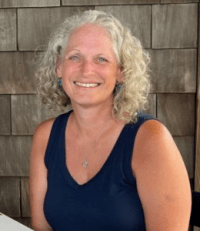
Social Work
The BSW program provides students with real-world opportunities to gain social work knowledge, values, ethics, and skills to work with client systems of all types, including individuals, families, groups, and communities. Offered both in-person and online, the program places an emphasis on an appreciation for human diversity and a strong commitment to social and economic justice. Students are prepared through courses and field experiences to engage in the social change process through interface with the regional community.
- Degrees & Offerings
-
- B.S.W.
- Location
-
- Bloomsburg
- Clearfield
- Lock Haven
- Mansfield
- Online
- Program Contact
-
Professor and BSW Program Director
Social Work at Commonwealth University
The mission of the Commonwealth University (CU) Social Work Program is to prepare baccalaureate social workers to be leaders and advocates for change guided by the knowledge, values, and skills of the profession. Consistent with the social work ethical code of conduct, our program will strive to develop students who use innovation, critical thinking, collaboration, and cultural awareness to attend to, prevent, and ameliorate social injustice.

The program prepares students to adhere to the ethical standards of social work, to advocate for social and economic justice, and to promote the strengths and well-being of diverse individuals, families, groups, organizations, and communities. Students graduate with the core competencies appropriate to entry-level generalist social work as well as the foundation for graduate social work education. The following are guiding principles.
- Human relationships are the vehicle for change.
- Diverse experiences, perspectives, and identities strengthen our communities.
- Social Work practice must be ethical, principled, and research-informed.
- Social workers must be skilled at both changing macro contexts and helping clients to better function within their environments.
- Critical thinking, both in self-reflection and analysis of social context, is key to creating change.
- A strengths perspective is fundamental to social work
Course Delivery Format
Bloomsburg
Face-to-Face
Online
Hybrid
Lock Haven
Face-to-Face
Online
Hybrid
Mansfield
Face-to-Face
Online
Hybrid
Clearfield
Face-to-Face
Online
Hybrid
Courses and Curriculum
With our flexible curriculum, students can complete this Council on Social Work Education (CSWE) accredited degree option in-person, 100% online, or in a hybrid format.
The program has been developed within the framework of curriculum content outlined by the Council on Social Work Education (CSWE) Accreditation Standards. The courses are carefully sequenced so that students may build upon previously acquired knowledge and have opportunities to experience the integration of various bodies of knowledge.
The courses that you take will prepare you to work with people in any setting, especially since our students complete volunteer hours in conjunction with several major courses and a 400-hour field placement before graduation.
Degree Requirements Degree Works
Note: Degree requirements effective for enrolled students beginning Fall 2023. All enrolled students, including matriculating students prior to Fall 2023, can review their degree program requirements and track progress to degree completion with our degree audit and advisement tool, Degree Works.
All Council on Social Work Education (CSWE)-accredited programs measure and report student learning outcomes. Students are assessed on their mastery of the competencies that comprise the accreditation standards of CSWE. These competencies are dimensions of social work practice that all social workers are expected to master during their professional training. A measurement benchmark is set by the social work programs for each competency. An assessment score at or above that benchmark is considered by the program to represent mastery of that particular competency.
The Assessment of Student Outcomes Form is used to assist in the evaluation of the program’s compliance with the CSWE’s accreditation standards below:
5.0.1(a) The program has a systematic plan for ongoing assessment of student achievement of the nine social work competencies (and any additional competencies added by the program) of generalist practice for baccalaureate social work programs and of generalist and specialized practice for master’s social work programs. The program assesses each competency, using at least two instruments, at least one of which is based in real or simulated demonstration of student achievement in field education. The instruments, the expected level of achievement for each instrument, and the expected level of achievement for each competency are determined by the program. Student competence must be assessed by program faculty or field personnel.
The program’s curriculum is designed to prepare graduates for generalist practice through the mastery of core competencies, those measurable practice behaviors that are knowledge, values, skills, and cognitive and affective processes that include the social worker’s critical thinking, affective reactions, and exercise of judgment in regard to unique practice situations.
All Council on Social Work Education accredited programs measure and report student learning outcomes. Students are assessed on their mastery of the nine competencies listed below that comprise the accreditation standards of the Council on Social Work Education. These competencies are dimensions of social work practice that all social workers are expected to master during their professional training. A measurement benchmark is set by the social work programs for each competency. At Commonwealth University the benchmark is 80%. An assessment score at or above that benchmark is considered by the program to represent mastery of that particular competency.
CSWE 2022 Competencies
- Demonstrate Ethical and Professional Behavior. a. make ethical decisions by applying the standards of the National Association of Social Workers Code of Ethics, relevant laws and regulations, models for ethical decision making, ethical conduct of research, and additional codes of ethics within the profession as appropriate to the context b. demonstrate professional behavior; appearance; and oral, written, and electronic communication c. use technology ethically and appropriately to facilitate practice outcomes d. use supervision and consultation to guide professional judgment and behavior
- Advance Human Rights and Social, Racial, Economic, and Environmental Justice. a. advocate for human rights at the individual, family, group, organizational, and community system levels b. engage in practices that advance human rights to promote social, racial, economic, and environmental justice.
- Engage Anti-Racism, Diversity, Equity, and Inclusion (ADEI) in Practice a. demonstrate anti-racist and anti-oppressive social work practice at the individual, family, group, organizational, community, research, and policy levels b. demonstrate cultural humility by applying critical reflection, self-awareness, and self-regulation to manage the influence of bias, power, privilege, and values in working with clients and constituencies, acknowledging them as experts of their own lived experiences.
- Engage in Practice-Informed Research and Research-Informed Practice a. apply research findings to inform and improve practice, policy, and programs b. identify ethical, culturally informed, anti-racist, and anti-oppressive strategies that address inherent biases for use in quantitative and qualitative research methods to advance the purposes of social work.
- Engage in Policy Practice a. use social justice, anti-racist, and anti-oppressive lenses to assess how social welfare policies affect the delivery of and access to social services b. apply critical thinking to analyze, formulate, and advocate for policies that advance human rights and social, racial, economic, and environmental justice.
- Engage with Individuals, Families, Groups, Organizations, and Communities a. apply knowledge of human behavior and person-in-environment, as well as interprofessional conceptual frameworks, to engage with clients and constituencies b. use empathy, reflection, and interpersonal skills to engage in culturally responsive practice with clients and constituencies.
- Assess Individuals, Families, Groups, Organizations, and Communities a. apply theories of human behavior and person-in-environment, as well as other culturally responsive and interprofessional conceptual frameworks, when assessing clients and constituencies b. demonstrate respect for client self-determination during the assessment process by collaborating with clients and constituencies in developing a mutually agreed-upon plan.
- intervene with Individuals, Families, Groups, Organizations, and Communities a. engage with clients and constituencies to critically choose and implement culturally responsive, evidence-informed interventions to achieve client and constituency goals b. incorporate culturally responsive methods to negotiate, mediate, and advocate with and on behalf of clients and constituencies.
- Evaluate Practice with Individuals, Families, Groups, Organizations, and Communities a. select and use culturally responsive methods for evaluation of outcomes b. critically analyze outcomes and apply evaluation findings to improve practice effectiveness with individuals, families, groups, organizations, and communities.
Program Overview
- Applicants with a BSW can apply for “advanced standing.” Those who excelled in their BSW programs may be eligible to opt out of the foundational year of the program.
- As an MSW graduate, students will be eligible for professional licensure in Pennsylvania, as well as the rest of the United States. Students receive advanced generalist training for helping professionals working in a number of practice settings, such as school systems, behavioral health institutions, medical settings, and child welfare agencies.
- The Commonwealth University MSW program has been awarded full accreditation through the Council on Social Work Education (CSWE).
- Up to 900 hours of field experience is built into the MSW program, allowing students to gain the hands-on experience needed to become a leader in the social work field.
Advanced Standing Admissions
Students who are accepted into the advanced standing program will complete only the Specialized Curriculum (second year) in order to earn an MSW. All general admissions criteria apply with the following changes:
- Undergraduate degree in social welfare or social work: Applicants must have an earned undergraduate degree (BSW, BA, BS) from a CSWE accredited baccalaureate program. Additionally, BSW programs recognized through CSWE’s International Social Work Degree Recognition and Evaluation Services, or that are covered under a memorandum of understanding with international social work accreditors will be accepted. All applicants must have earned a 3.2 in their major (on a 4.0 scale) in order to be eligible for advanced standing. Applicants without a 3.2 GPA but with unusual circumstances may be considered for admission for advanced standing when they provide a written argument for exception to this requirement in the admissions essay.
- References: Applicants will provide the names and contact information of three professional references who will then be contacted to provide letters of recommendation. References from personal relationships will not be accepted. One reference must be from a BSW field supervisor, liaison, or field faculty. At least one reference must be from a BSW faculty member.
- Advanced standing applicants will also submit a copy of their final BSW field internship evaluation.
Social Work
Field Experiences
Field experience is at the heart of social work education and is an important component of our BSW program. We strive to provide you with diverse opportunities in your field placement, so you can integrate meaningful experiences into your lifelong learning process. Paired with the academic learning and volunteer experiences from various social work courses, the 400-hour field practicum along with the senior integrative seminar assists you in integrating academic classroom learning with real-life agency experiences.
Some examples of past field placements include:
- Susquehanna Health Systems
- Community Services Group
- Crossroads Counseling
- County Children and Youth Agencies
- Department of Veteran’s Affairs
- Several area School Districts
- County Area Agency on Aging Agencies
- Geisinger Medical Center
- SAM-Inc.
- Family Service Society
- Wellspring Community Support Services
- Children’s House.
- Probation/parole/prisons
Fellowship Opportunities
We are one of 14 schools across the state to participate in the CWEB program. This program requires you to complete your field placement in a county Children and Youth agency and work for a PA county Children and Youth agency for one year after you graduate.
You will receive a monthly stipend during your senior year as well as have your senior year tuition paid by CWEB. More information about this program can be found at socialwork.pitt.edu
Behavioral Health Higher Education Plan (BHHEP): is designed to provide prospective bachelor 's-level college students in Pennsylvania with the opportunity to have the program pay for their entire senior year of classes. In exchange, students would complete an internship with a provider during college and be placed with the same provider for two years of employment after graduation.
This program is offered through the Behavioral Health Alliance of Rural Pennsylvania. More information about this program can be found at bharp.org
Student Experience
Clubs and Organizations
Social Work Club: The social work club is a group of social work majors making change whose mission is to help as many people as possible in the communities surrounding the Commonwealth University campuses. We believe in team unity and strength and make it a tradition to build strength through advisement and mentorship to all new members. Our club is a safe space for learning, motivation, and growth, and we value the commitment, hard work, and caring attributes of all our members.
Phi Alpha Honor Society: A chapter of the Phi Alpha Honor Society is active at the Commonwealth University. The organization seeks to foster higher standards of academic excellence for Social Work and to honor those who have attained excellence in the major. A student must demonstrate academic excellence and community and university service in order to be a member of the honor society.
Licensure and Certification
As a Council on Social Work Education (CSWE) accredited program, our BSW graduates are qualified to apply for the LBSW (licensed baccalaureate social worker) credential in Pennsylvania. Professional licensure laws and regulations vary from state to state and are subject to change without notice. If you're planning to pursue a professional credential in a state other than Pennsylvania, it's highly recommended you contact the appropriate state licensing agency to seek guidance and verify requirements. In states that provide licensure for bachelor’s level social workers, a bachelor’s degree from a CSWE-accredited program is one of the requirements for licensure.
Professional Preparation
Beyond the classroom, social work majors have opportunities to participate in research and program development projects independently and in collaboration with social work professors and staff. Engagement in social justice research provides students with opportunities to develop macro level competencies and practice behaviors. Students can participate in the annual National Association of Social Workers-Pennsylvania conference as volunteers, and they can also submit research projects and community engagement proposals. We have a rich history of students who have presented and been recognized at the NASW-PA and other regional and local conferences for projects focused on advocacy and social justice initiatives.
Students also have opportunities to develop manuscripts and publish in peer reviewed journals. Students have presented and published on various topics including but not limited to mental health, food dignity, student athlete mental health, Act 101 transitions, social and health disparities experienced among marginalized populations and self-care barriers for social work majors.
Our BSW program works to empower students to develop leadership skills in and out the classroom. Students are encouraged to take on leadership roles on campus in a variety of settings with campus ADEI and Health and Wellness Programs. Our students have opportunities to engage in and develop educational programs that aim to address the needs of students on all campuses.
Many of these initiatives focus on topics that affect student success including physical and mental health, AOD, food dignity, women’s issues, BIPOC and LGBTQ initiatives, and programming for students with accommodations.
Scholarships
Our program works collaboratively to empower students to take on leadership roles in professional organizations. One program that we work hand in hand with includes the DELTA program through NASW-PA. This program, Diversity & Equity Leadership, Training and Advancement (DELTA) Scholars program helps students from underrepresented populations to develop leadership skills with the goal of advancing academic success and careers. To be eligible for this program, candidates must be a member of a racial or ethnic minority group, a part of the LGBTQIA+ community, a person with a disability, or a resident of a rural area who is currently enrolled in an accredited social work program. More information about this program can be found at the link below.
The Commonwealth Difference

Careers
According to the Bureau of Labor and Statistics, the job outlook for social workers is expected to grow at a rate faster than average for all occupations. Students graduating with a BSW have opportunities to work in various areas of practice including mental health clinics, schools, child welfare and human service organizations, hospitals and in government. With a degree in social work, you’ll be prepared for generalist social work practice and have the skills, values, and knowledge for employment in an entry-level position in any social service agency, regardless of the client group or mission of the agency. Recent graduates have been employed in the following fields:
Potential Job Opportunities
- Addictions and Substance Abuse
- Child Welfare
- Community Advocacy
- Community Non-Profits
- Corrections/Court System
- Forensic Social Work
- Foster Care and Adoption
- Government Agencies
- Hospitals
- Mental Health
- Outpatient Counseling
- Residential Treatment Facilities
- Schools

CU Social Work Program in the News
View the latest news about the Commonwealth University Social Work program!
Connect with our Faculty
Applying to This Program
Apply
-
Application Process
Review the step-by-step process whether you're a first-year student, transferring to CU, or more.
-
Apply Now
By starting your application, you gain access to your personalized application portal to view your progress.
-
Scholarships
As the largest comprehensive university in north central and northeastern Pennsylvania, CommonwealthU works hard to provide a world-class education that consistently rates among the best values in the nation.
Explore More
-
Explore Commonwealth University
There's no better way to learn more than to experience Commonwealth University for yourself! Set up a campus tour or connect with us virtually.
-
Connect with Your Admissions Counselor
Applying to college is a big step. You have questions, and we have answers!
-
Understanding Financial Aid
Financial Aid can be a complex topic. Our Financial Aid team is here to tell you what you need to know and help you navigate the financial aid process.







